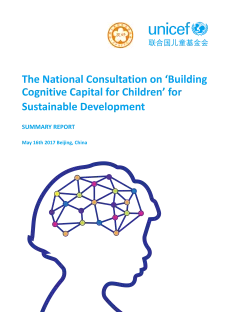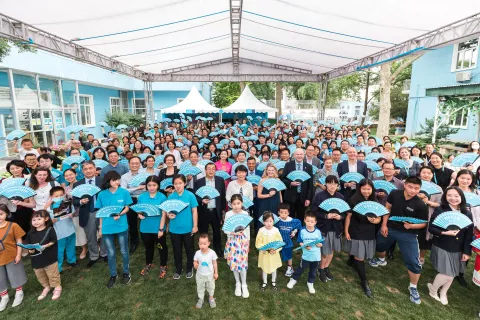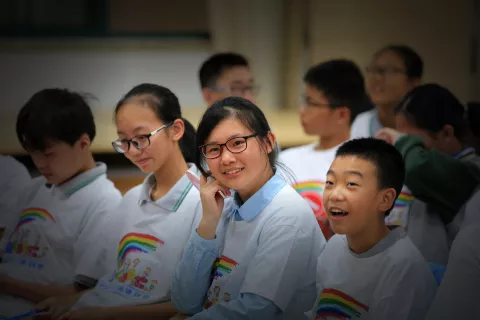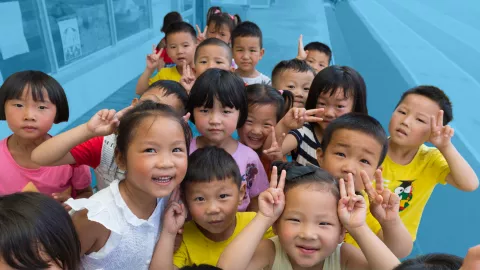Building Cognitive Capital for Children
The National Consultation on 'Building Cognitive Capital for Children' for Sustainable Development SUMMARY REPORT
- Available in:
- 中文
- English
Highlights
Introduction
The National Consultation on 'Building Cognitive Capital for Children' for Sustainable Development took place on May 16th 2017 in Beijing, China as the first event exclusively dedicated to cognitive capital for Children in the country. UNICEF published a peer-reviewed paper titled 'What could cognitive capital mean for China's children?' 2 in the PsyCh Journal to coincide with the meeting. The meeting was co-hosted by UNICEF China and the Chinese People's Association for Friendship with Foreign Countries.
Cognitive capital is an encompassing term for the set of cognitive skills and abilities that enable humans, children in particular, to interact meaningfully with the world around them through learning, perception, communication, and creativity. It provides a robust, integrated framework for investment in education, health, nutrition, protection, and an enabling environment for children to ensure optimal brain development.
Investing in cognitive capital is extremely important for many reasons. First and foremost, effective, efficient, and equitable investment in cognitive capital ensures children have the best start in life and access to the support and services they need, which is a core part of realizing the commitment that China has already made on the Convention on the Rights of the Child. It also has a knock-on effect, including better employment prospects later in life, and in turn a stronger contribution to the health of their nation. Building cognitive capital requires an integrated set of timely interventions that ensure optimal brain, emotional, and linguistic development.
The event featured insightful presentations and panel discussions regarding the concept of cognitive capital, its importance to the development of both children and wider society, and how households, institutions, and governments can foster it. The high-level presenters and panelists included Chinese government officials from ministries and departments, distinguished Chinese and international academics and policy experts, as well as national and international UNICEF staff.
Participants recognized the importance of investing in cognitive capital for children today as an investment in the future. For China in particular, as the population ages and economic growth moves towards a knowledge-based economy, this is a crucial moment to invest in the full cognitive development of the future workforce.
The event ignited interest and constructive debate about investment in cognitive capital for children in China, both as a pathway to continued sustainable growth and as a way of realizing children's rights. It also provided a renewed impetus for UNICEF and other international and national organizations to strengthen their cooperation with the Chinese government as it strives to meet these goals.
This report summarizes the National Consultation to enable sharing and understanding across sectors. It reflects the argument made to think about children's cognitive development and sustainable growth as one. By investing equitably in children's cognitive capital, we not only benefit today's children but tomorrow's national progress.





